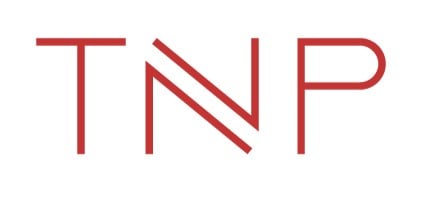

Chief, legal and company secretariat | Eko Electricity Distribution



Wola Joseph-Condotti
Chief, legal and company secretariat | Eko Electricity Distribution
What are the most significant cases or transactions that your legal team has recently been involved in?
As a power distribution company, the team has been involved in groundbreaking projects to increase electricity supply to customers in the company’s franchise area and the nation.
Three transactions come to mind: (i)the Victoria Island 30 MW embedded generation power project. The impending need to close the generation gap in the country has been a conversation that has lingered for a while. As a result, it became crucial to consider measures aimed at exploring non-grid-reliant solutions. This formed the basis upon which conversations around siting a 30 MW gas-fired power plant at the Victoria Island area of the company’s network sprung. To this end, the team took centre stage in negotiating the transaction documents on behalf of the company, including but not limited to the Power Purchase Agreement, Connection Agreement, Property Development Agreement and Direct Agreement with the lenders. With the finalisation of the transaction documents, the project kicked off.
Notably, this project is the first of its kind in Lagos State. Upon the completion of the power plant, we could close the power availability deficit by 30 MW, potentially increasing the generation capacity to up to 50MW. Equally, with the state-of-the-art technology deployed for the power plant (which will operate on a combined cycle), operations will edge towards ensuring environmental sustainability.
(ii) The Niger Delta Power Holding Company of Nigeria (NDPHC) 100 MW Bilateral Transaction. Regarding this transaction, it is essential to start by mentioning that it is the first bilateral transaction following the Order issued by NERC on the Partial Activation of Contracts, and so far, the transaction document has served as a template for other industry players to adopt for their bilateral transactions. The team negotiated the transaction passport document with the NDPHC to procure and deliver 100 MW contract capacity to the company’s delivery point. With this transaction, the company could secure a guaranteed stream of energy supply to make up its MYTO-allocated quantity as set by the regulator.
(iii) The Tx/Dx Project – CBN NEMSF 3. Given the need to strengthen and close the transmission infrastructure gap, the Central Bank of Nigeria (CBN) commenced phase three of its intervention project in the power sector, this time, targeted at improving transmission infrastructure to enhance the wheeling capacity of the generated output. Considering the transaction structure, it became crucial that DisCos are part of the arrangement to ensure its implementation does not meet a waterloo. To this end, the team took centre stage in negotiating the Investment Agreement, the Facility Disbursement Agreement and the Revenue Administration Agreement on behalf of DisCos. Similarly, regarding the Engineering Procurement and Construction (EPC) works to be executed under the company’s network area, the team was instrumental in negotiating and finalising the EPC contracts. The respective projects are currently undergoing implementation in networks of successor DisCos.
How does the in-house legal function contribute to the overall dispute resolution strategy of the organisation?
As a power distribution company, complaints and dispute claims are expected to be regularly received, especially considering that we are the last mile in the value chain. In this regard, the regulator has designed regulations that address issues relating to electricity complaints. These channels involve engaging with the DisCos at the first level before escalating to the NERC Forum and if dissatisfied, appeal to NERC. Only when all these measures fail can a customer explore other conventional methods of complaint resolution.
As the in-house counsel, we drive the dispute resolution strategy of the company. Hence, we manage different touchpoints where complaints are channelled to ensure that those complaints are effectively addressed. In framing the company’s dispute resolution strategy, we maintain and inculcate in the customer interfacing team to always ensure that customer complaints are not just attended to but addressed as it is in neglecting these complaints that the issues escalate into matters brought before forums and the regulator for consideration.
Regarding other disputes with third parties, for instance, with contractors, we ensure that all contracts have provisions that compel third parties to explore negotiation up to the senior management level before it can be escalated to other dispute resolution methods. The essence of this is to ensure that the company can manage disputes arising from contracts internally before the same becomes public. Also, as chief drivers of the dispute resolution strategy, it is fundamental that the company’s reputation is protected. Hence, measures aimed at resolving issues internally before they escalate are mostly explored.
What are some of the main trends in the industry sector you work in in Nigeria?
Currently the industry has a lot of trends, especially as it is edging towards decentralisation. The notable trends are as follows: (ii) Constitutional Amendment and the Electricity Act, 2023 before the amendment of the constitution, under the concurrent legislative list, the powers of the State Houses of Assembly to legislate on electricity matters was limited to areas not covered by the national grid. However, with the amendment, the limitations were removed, thereby affording the state legislatures to legislate on electricity matters without borders. This amendment followed the enactment of the Electricity Act, 2023 that emphasised the rights of states to make their laws, create their electricity market and transition from the national electricity market which is regulated by NERC. Given these changes, about five states and counting have enacted their electricity laws which is the first step to creating a state electricity market. As a result, it is expected that licensees that operate under NERC’s oversight will now operate under the regulatory purview of the states. Not only will state electricity markets be in operation, at some point, some existing licensee, will go through disaggregation and unbundling exercises. DisCos will take centre stage in this regard as at their license will be disaggregated thereby paving the way to licenses suppliers of electricity. The supply licensees will then become the last mile in the value chain. Also, the Transmission Company of Nigeria (TCN) will be unbundling to form the Independent System Operator and the Transmission Service Provider (TSP) as independent entities.
(ii) Bilateral Contracting: Currently, there are conversations regarding renewing NBET’s trading license. It is seldomly discussed that NBET has fulfilled its purpose in the sector, especially as its existence is timebound and the industry is expected to gravitate to a competitive market where energy purchase and sale should be solely between GenCos and DisCos. To therefore test the preparedness of the market for the transition, NERC emphasised the need to commence bilateral contracting between GenCos and some selected Successor DisCos. The expectation is that these DisCos will bilaterally contract their MYTO allocation from the GenCos. The implementation of the programme will be monitored by NERC and the outcome will inform if it will be deployed nationwide.
(iii) The National Integrated Implementation and Strategic Policy: The Electricity Act, 2023 stipulates that within a year of its enactment, the Minister of Power will issue the National Integrated Electricity Policy and Strategic Implementation Plan (the ‘Policy Document’). The Policy Document is to define a clear pathway for the power sector in the short, medium and long term. Heeding this call, the Minister of Power recently called all stakeholders to a retreat where deliberations regarding the strategic implementation plan was held. Market participants and stakeholders provided thoughts on the sector, expectations, envisaged challenges and measures to be deployed towards resolving the identified challenge. It is expected that the Policy Document will be released by the Ministry of Power and the industry will utilise same as a guide in driving its activities for a prosperous Nigeria Electricity Supply industry (NESI).
(iv) Energy Transition COP26 is notable in Nigeria’s energy transition journey. Essentially, it birthed Nigeria’s commitment to achieving carbon neutrality in its ecosystem. Being a functional part of the Nigerian energy space, the Nigeria Electricity Supply Industry (NESI) has keyed into this commitment to reflect its contribution to attaining carbon neutrality by 2060. Currently, most feedstock for power generation is adjudged unclean. As such, the NESI, through the instrumentality of the legislature, is now positioned towards ensuring that there is a continuous pledge to utilising renewables for electricity generation activities. In this regard, it has now been made a part of the Electricity Act, 2023 for distribution companies to ensure that a part of their electricity procurement is from renewable sources. This is a major trend that the electricity eco space will continue to witness given Nigeria’s pledge to not only attain carbon neutrality but also, increase clean energy access considering SDG 7.